Georgian Prime Minister refuses to resign upon Georgian journalists' request
Georgian Prime Minister refused to resign amid the death of a TV Pirveli cameraman
Earlier today, Georgian Prime Minister Irakli Garibashvili refused to fulfill the demands of the protesters and resign. This demand was put forward the day before by participants of a protest organized by journalists over the death of a cameraman beaten by far-right groups in Tbilisi on July 5. The prime minister also said that the holding of the LGBT pride, which caused the riots, was unacceptable.
According to Garibashvili, the large-scale protest is “a failed conspiracy against the state and the church”.
“The conspiracy planned by anti-state and anti-church forces did not take place and will never take place in our country. They tried to use this man’s tragedy to achieve their political goals”, Garibashvili said.
“Of course, regardless of the cause of Alexander Lashkarava’s death, all those responsible will be punished with the utmost severity. The police have already detained 4 people involved in the beating of this man.
I want to reiterate that any violence is unacceptable, we condemn it, we will always condemn it and will prevent any violence from occurring in the country, we will not allow violence in our state”.
According to the Prime Minister, the authorities told the LGBT community in advance that holding the Pride is unacceptable due to the high risks it may pose.
According to him, “when 95% of the population is against the propaganda march, we must obey”.
“This is the opinion of the overwhelming majority of our population, we are the government elected by the people, and we have to reckon with this”, Garibashvili said.
According to him, there will no longer be a case when the minority decides the fate of the majority.
Protest in front of parliament
Representatives of the leading Georgian media, who organized a rally in front of the Georgian parliament yesterday, presented an ultimatum to the government, demanding the resignation of the prime minister and government by noon on 12 June.
However, Georgian Prime Minister Irakli Garibashvili, while speaking at a government meeting earlier this morning, not only refused to resign but also accused the opposition of organizing the July 5 riots.
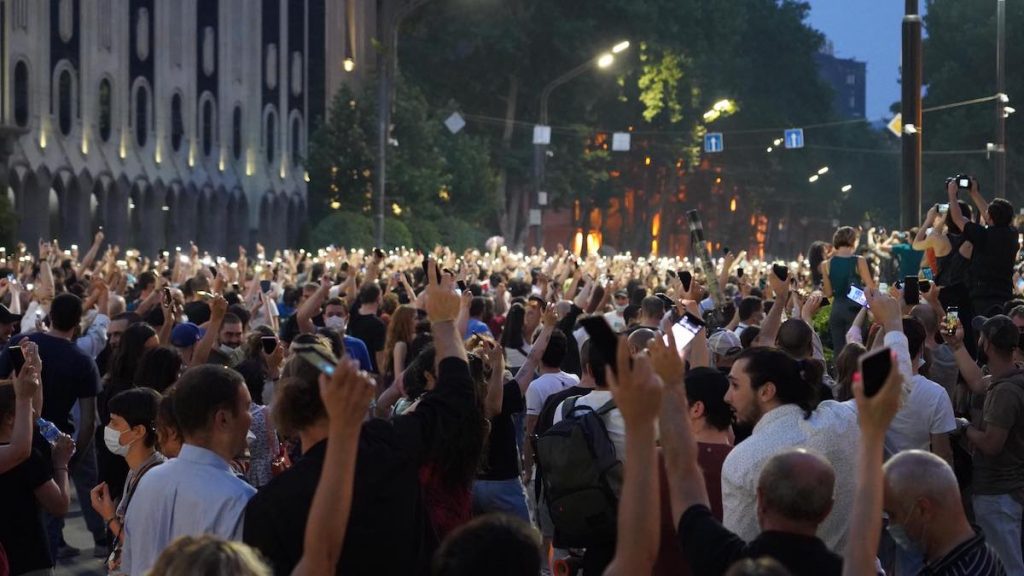
The protest took place on the evening of June 11 in front of the parliament building after the death of the operator of the Pirveli TV channel Lekso Lashkarava. Lashkarava was severely beaten by members of radical groups on July 5 when he was filming what was happening in the center of Tbilisi.
On that day, dozens of journalists were beaten by opponents of the LGBT pride.
Thousands of people joined the rally, which was organized yesterday via social media. Together with journalists, ordinary citizens, politicians, and civil activists joined in the demand for the government’s resignation.
- What are the implications of violent far-right rally that replaced Tbilisi Pride?
- Tbilisi Pride week begins with a series of clashes and arrests
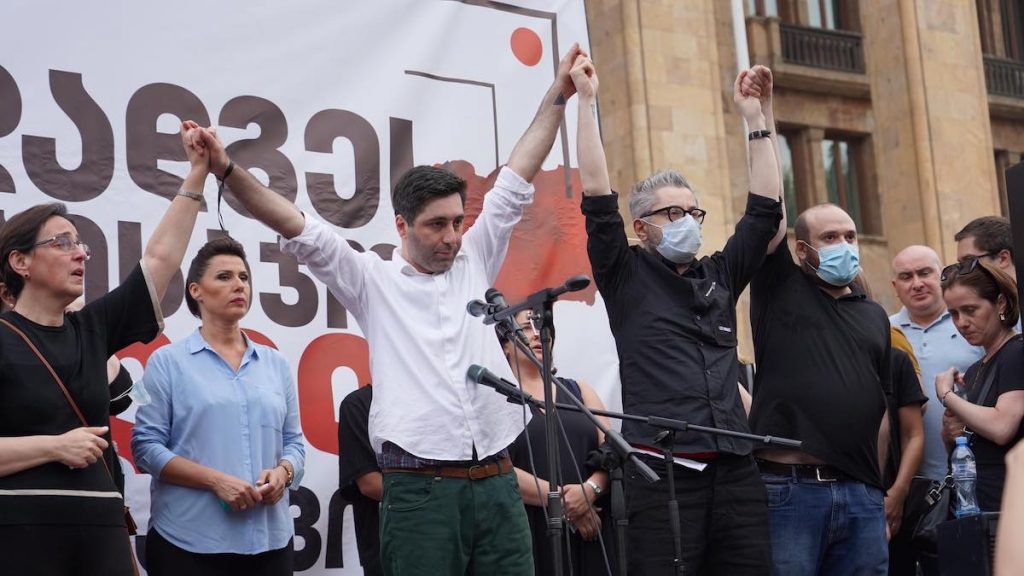
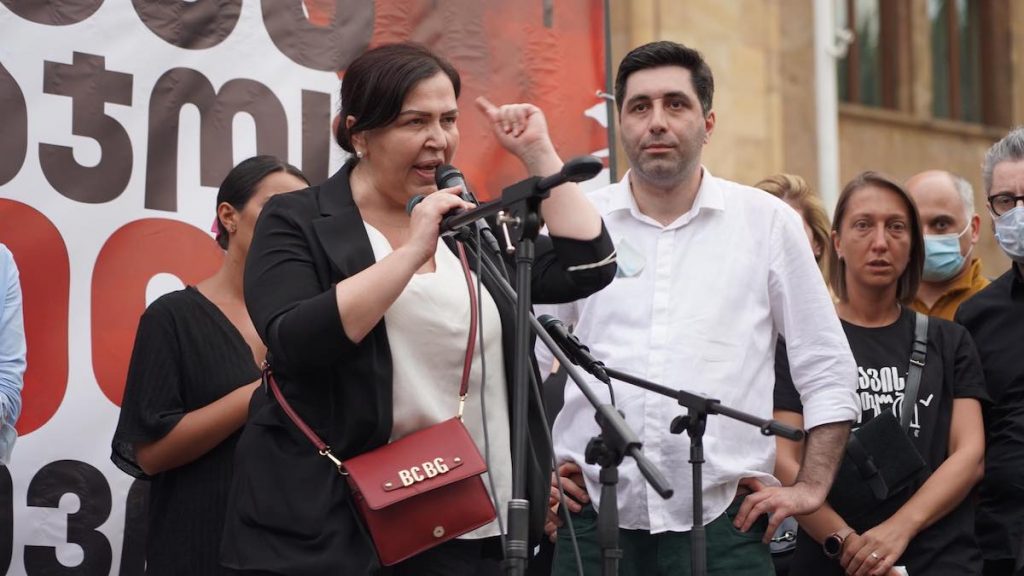
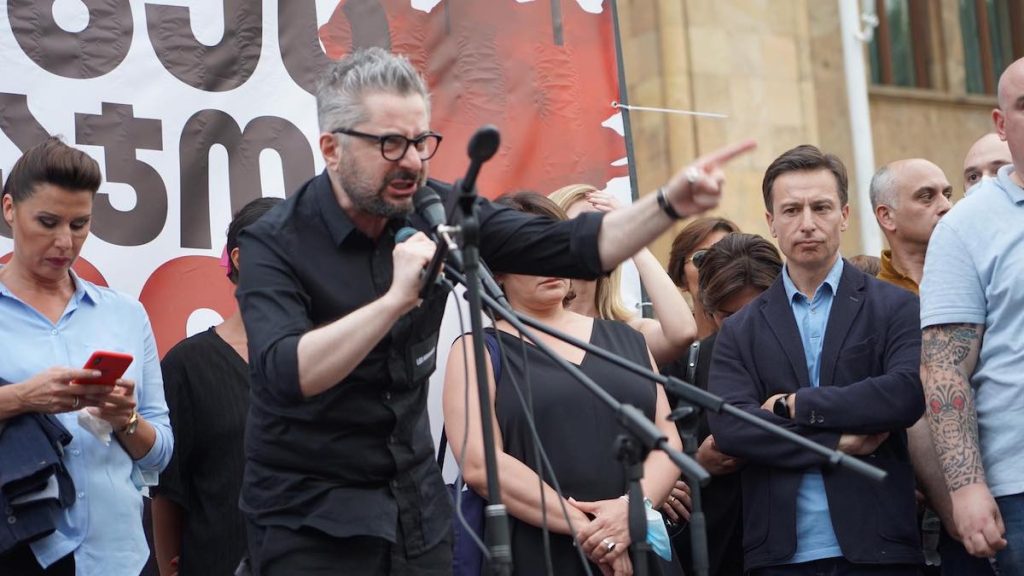
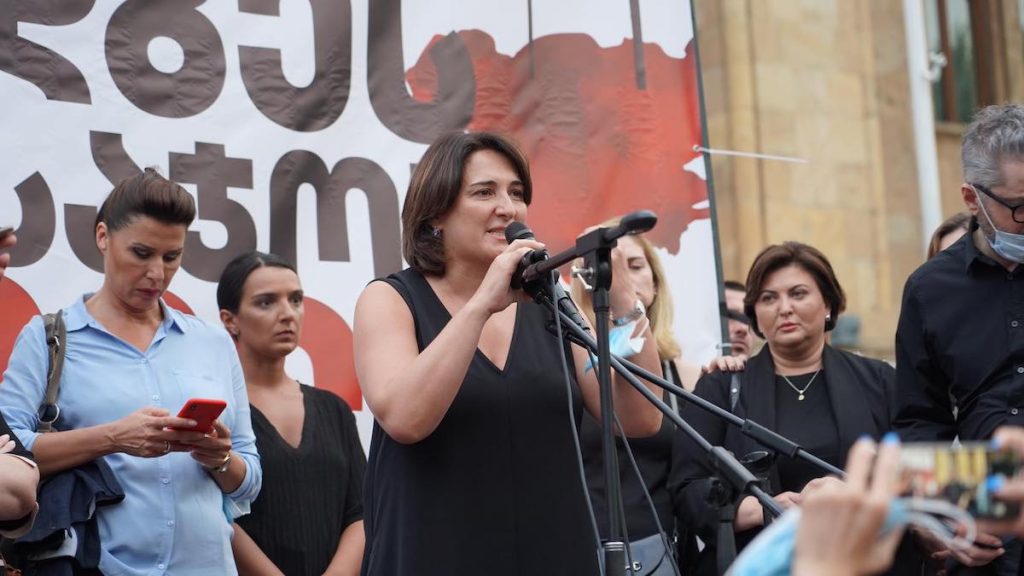
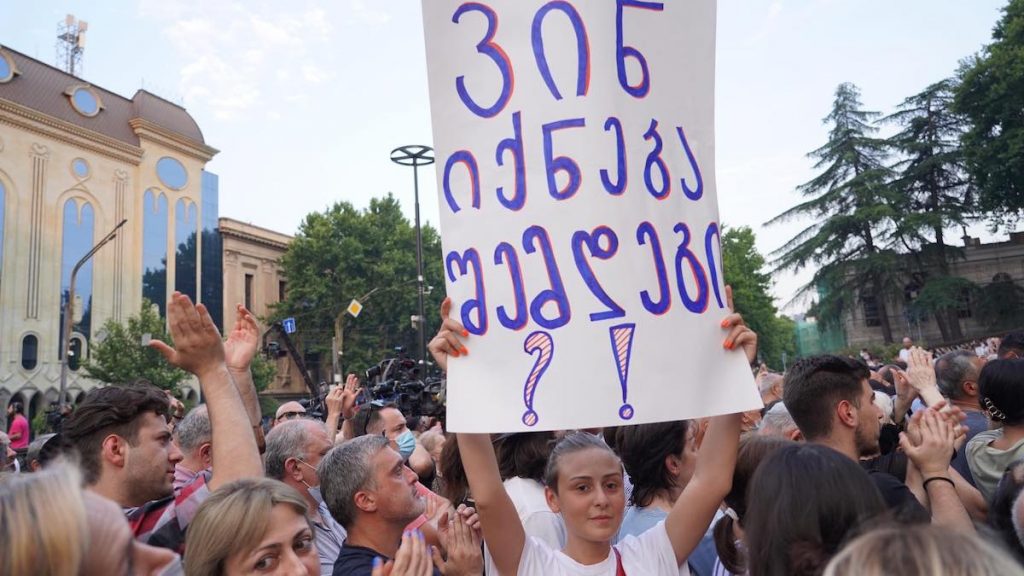
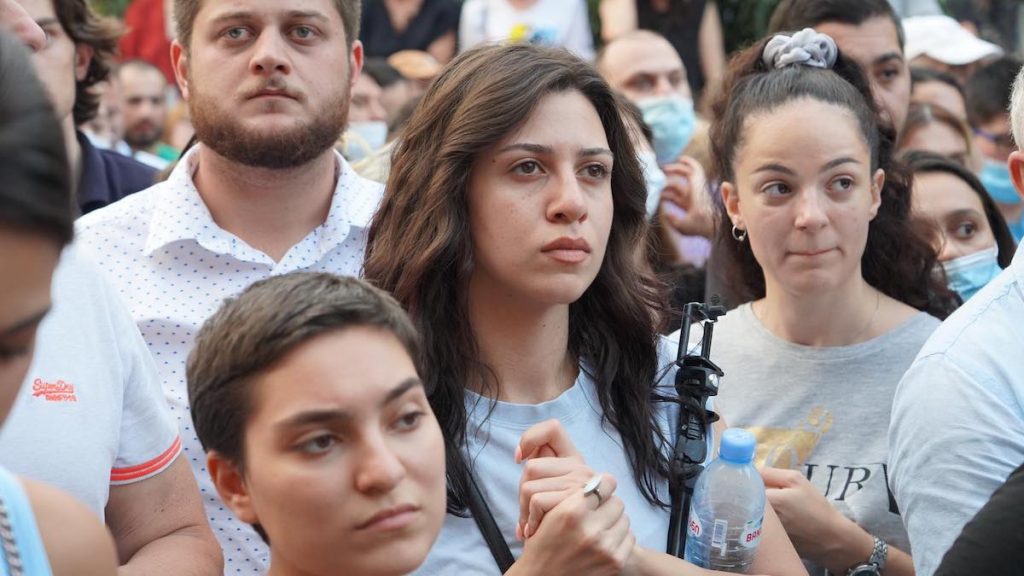

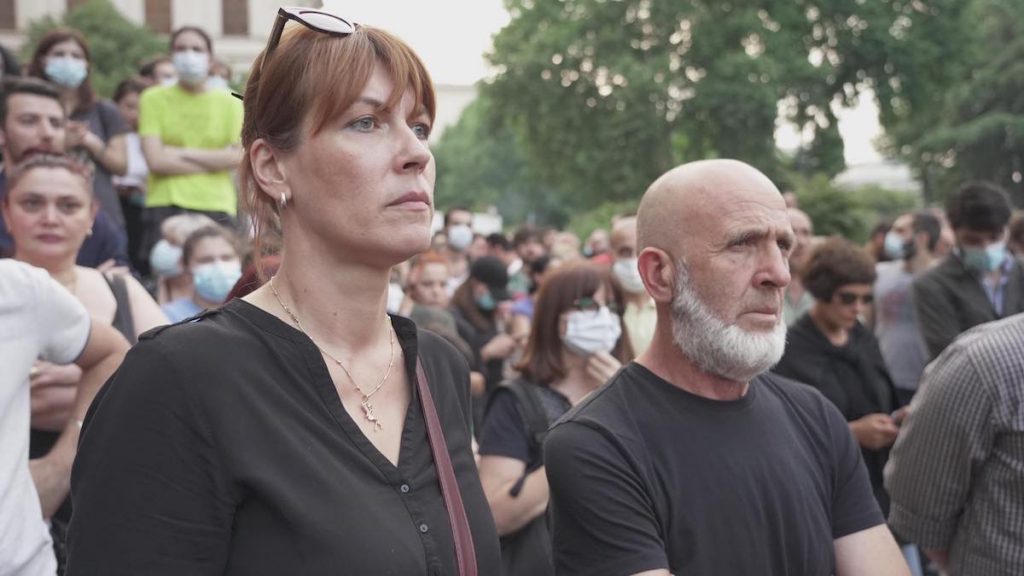
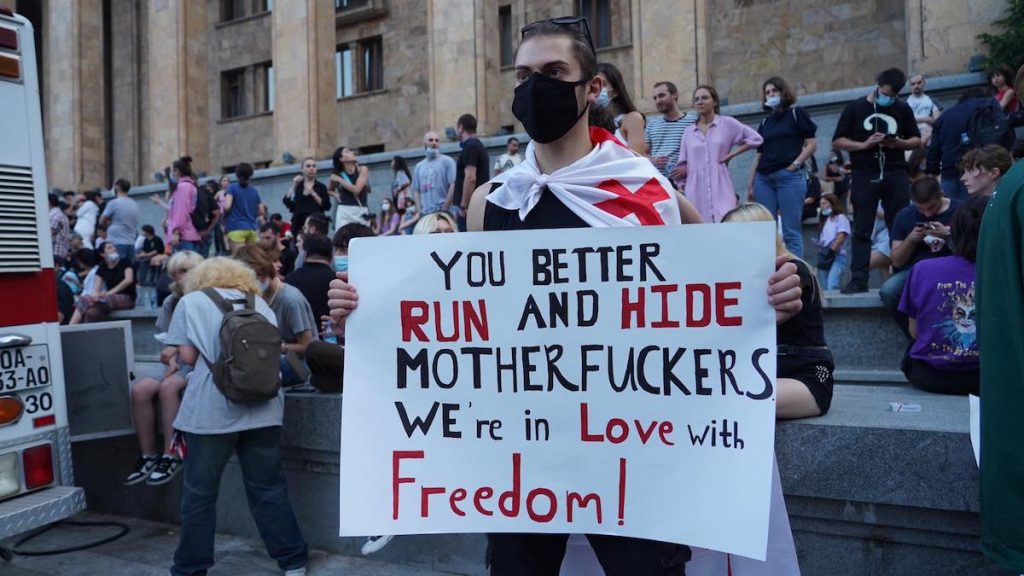
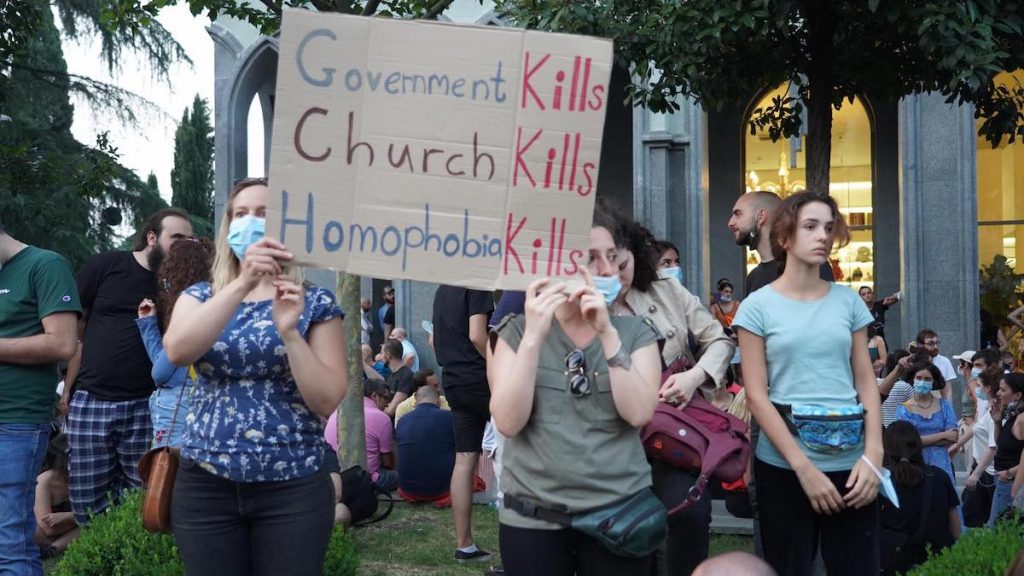
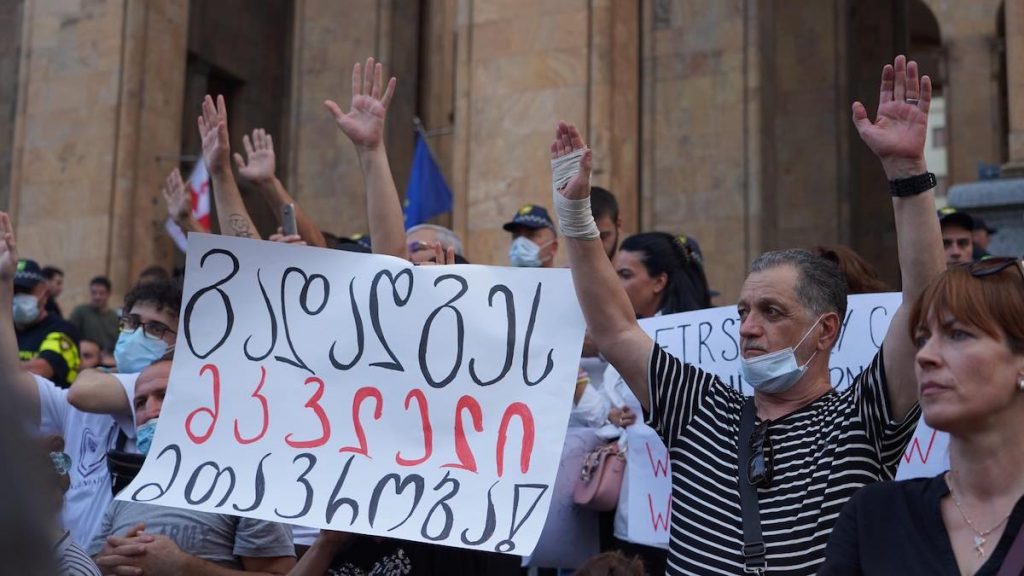

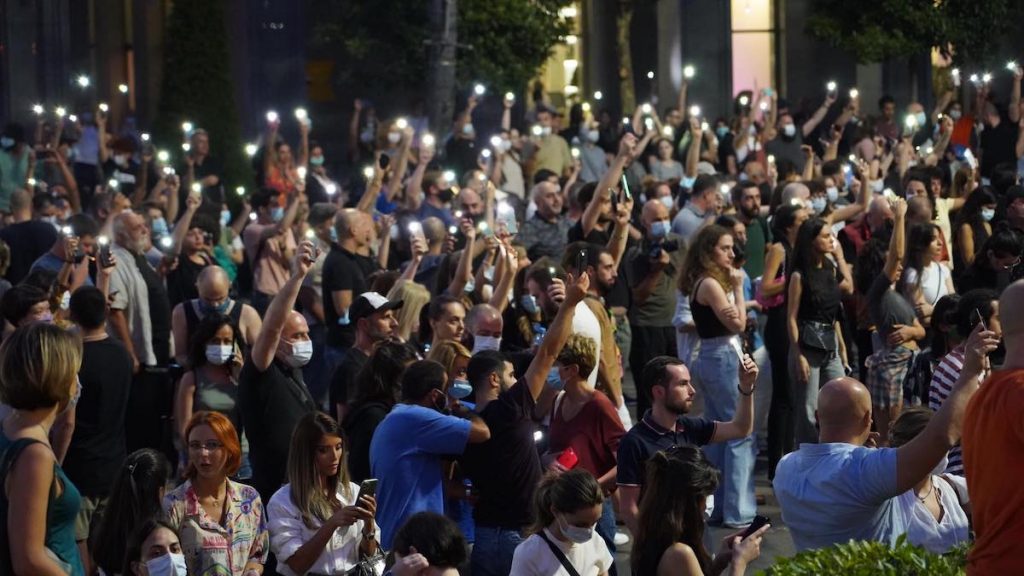
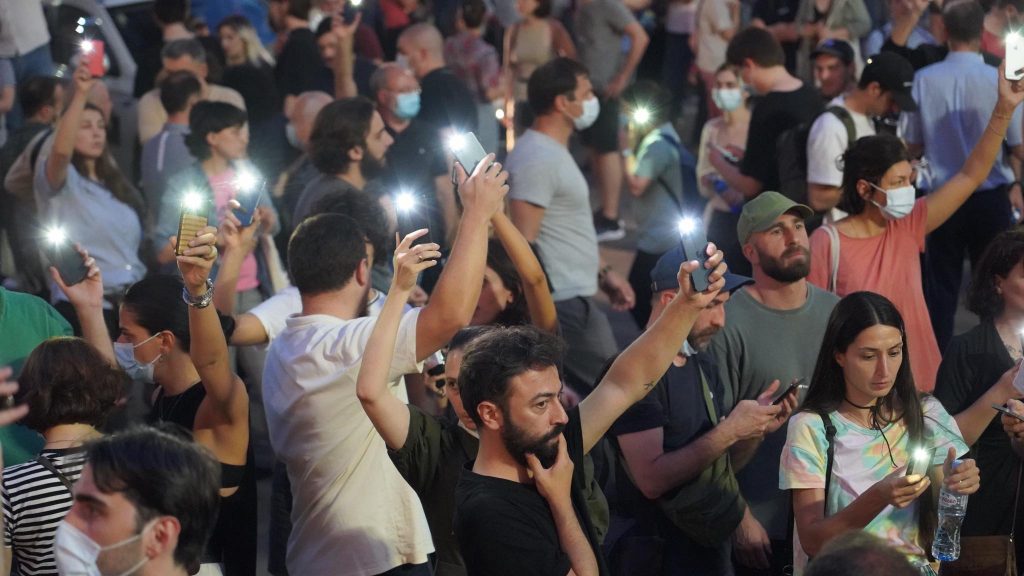
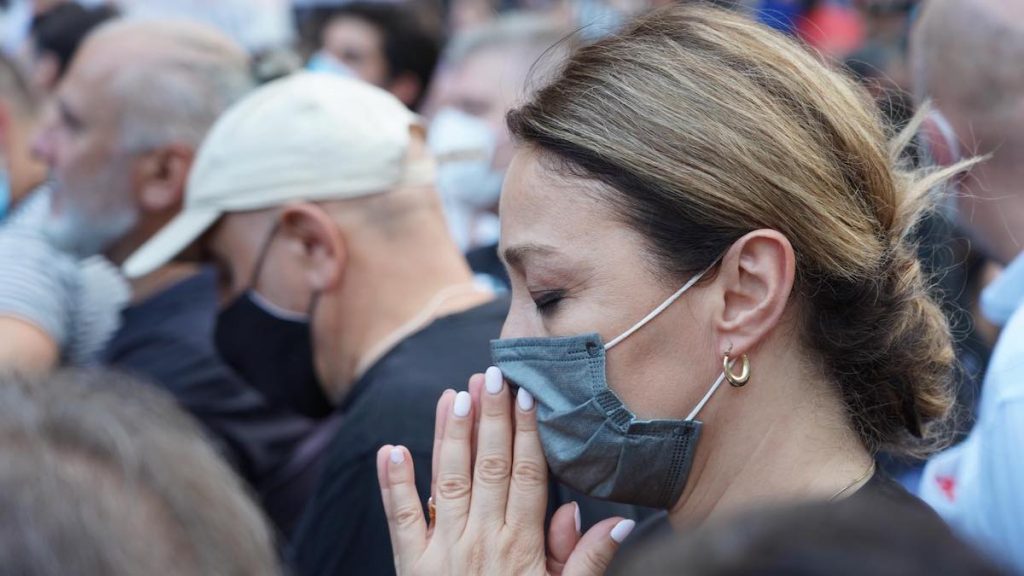
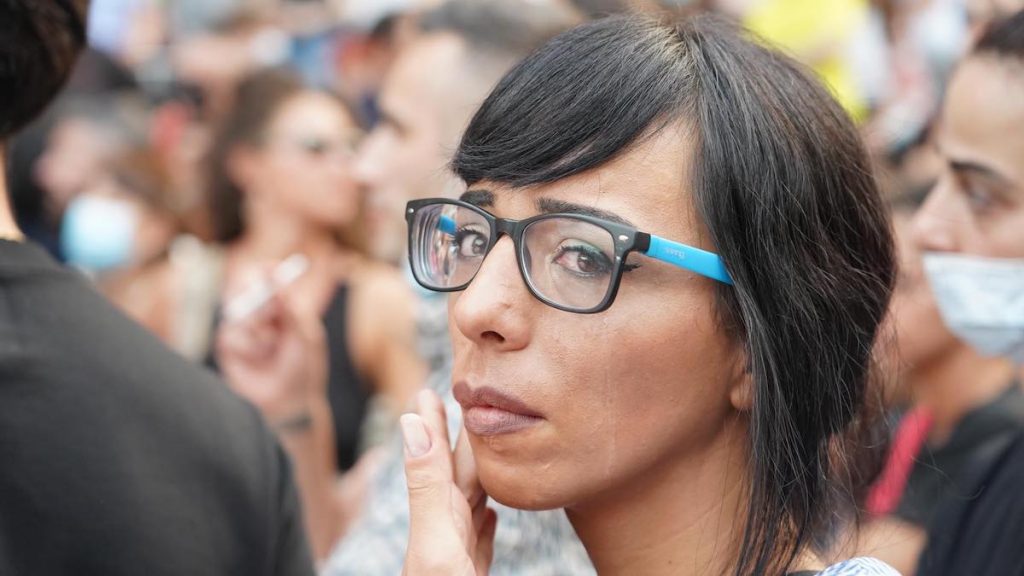
The speakers were mainly journalists. In their speeches, they noted that the journalistic profession in the country has become dangerous and that freedom of speech is under threat as a result of government policies.
The protest started at 6:00 pm lasted till 4:00 am.
“We have given the government until 12 noon tomorrow. The only acceptable solution for us is the resignation of the entire government headed by Prime Minister Garibashvili and the resignation of the head of the Security Service Liluashvili. If this demand is not met, we will meet tomorrow at 6 o’clock”, said Nika Gvaramia, one of the protesters and director of the Mtavari Arkhi TV channel.
After the rally in front of parliament, the protesters relocated to the government office building.
The Georgian media are almost completely in solidarity with the demands of the rally. Shortly before the start of the rally, media representatives issued a joint statement, in which they stressed that cases of violation of the rights of journalists “came to a critical point”.
The statement was signed by 71 media outlets, including JAMnews.
The authors of the appeal called on the diplomatic corps and international organizations “to immediately and effectively respond to the targeted persecution of media representatives on Rustaveli Avenue on July 5”.
“The government does not ensure the safety of journalists, and statements by members of the ruling party further exacerbate the violence”, the statement reads.
- Media hunted: Over twenty reporters injured during anti-Pride rally in Tbilisi
- Opponents of Tbilisi Pride attack opposition, journalists
On July 5, the March of Dignity was to be held in Tbilisi within the framework of the Tbilisi Pride Week. The march to the Rustaveli metro was scheduled for 18:00.
The Patriarchate of the Georgian Orthodox Church announced a counter-rally against the march and called on supporters to take to the streets and protect the country from a “perverted way of life”.
On the morning of July 5, homophobic groups marched towards parliament. First, they dismantled the opposition tents in front of the parliament building and then began attacking the journalists who came to cover these events.
On July 5, journalists were being deliberately targeted in Tbilisi – 53 media representatives were injured as a result of attacks by radical groups.
The priests openly urged the congregation to commit violent acts: “You must use force, use force in the name of the Motherland”, Archpriest Spiridon addressed the supporters at the rally.
Observers note that the actions of the criminals were provoked by a July 5 statement of prime minister Garibashvili. Garibashvili did not blame the participants of the violent far-right rally, but instead, put full responsibility on the organizers of the March of Dignity, warned them of possible complications of the situation and urged them not to go out along Rustaveli Avenue. Garibashvili said the planned March of Dignity was “inappropriate” and arranged by the opposition.
The March of Dignity was canceled, but the riots on Rustaveli Avenue continued for several more hours.
An insufficient number of police officers were mobilized on the spot during the day, the journalists said. The interior minister said that “as many policemen as possible” were mobilized.
According to media representatives, they were targeted by homophobes. Some of the journalists required surgery and serious medical intervention.
Among them was Lekso Lashkarava, an operator of the Pirveli TV channel. The far-right mob attacked Lashkarava and his colleague Miranda Bagaturia, a journalist for TV Pirveli, in the office of the Shame Movement. Bagaturia said that Lashkarava was beaten by 20 people. According to eyewitnesses, there were clergymen among the criminals.
Lashkarava was admitted to the hospital with a fracture of the facial bone; he underwent surgery that same day.
He left the clinic three days later. The day before his death, on June 10th, he was a guest on the TV Pirveli daytime program, where he spoke about the events of July 5th.
Lashkarava was found dead in his bed by his mother on 11 July.
Family members claim that Lashkarav had nose bleeding.
Lashkarava’s body was handed over to forensic experts without the consent of the family. The body of the man, wrapped in blue plastic, was carried out of the house without a stretcher and dragged to the car. Such treatment of the deceased has become another cause of public discontent and a topic of discussion on social media.
The Ministry of Internal Affairs launched an investigation under the article on incitement to suicide.
Soon after Lashkarava’s death, pro-government websites began spreading information that Lashkarava was addicted to drugs and that he had died of an overdose.
In the evening of the same day, July 11, a briefing was held at the Ministry of Internal Affairs, at which the agency began to disseminate the version that Lashkarava was “under the influence of substances”.


















